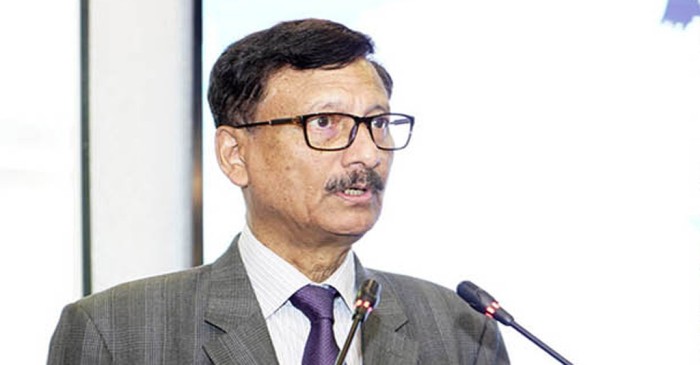

Foreign affairs adviser Md Touhid Hossain on Saturday said that Bangladesh needed to ‘maintain a kind a balance’ in pursuing its foreign relations with big countries like India, China and the United States.
He mentioned that Bangladesh was not a major player in the global arena.
‘Bangladesh has an interest in every country. It’s an important issue that we need to keep in mind,’ he said while speaking at a national dialogue organised by the Forum for Bangladesh Studies at the Krishibid Institute Bangladesh.
The adviser referred to the trade relations between India and China despite a conflict; and also India’s kind of friendly relations with the United States; and stressed that it is important for Bangladesh to maintain good relations with all these three countries.
Pointing at the dialogue theme – Unity, Reforms and Elections – he said that unity was the most important thing. Bangladesh achieved independence in 1971 against Pakistan as the people of the country demonstrated unity, he said.
Apparently referring to 1971 war criminals, Hossain, however, said there is lacking in any unity but the people of the country remained united ‘by and large’ during the War of Liberation in 1971.
He also said the people of the country united against the students during the July-August movement which created an opportunity for the country to have a free environment.
Talking about the responsibility of the political parties to have stronger democracy, Hossain said it is the responsibility of the people to observe and act if the political parties deviate from their key values.
‘If a democratic society can be established, mass people’s interests will get priority,’ he said.
Touhid hoped that the elected government will meet people’s expectations running the country in a united way.
The foreign adviser also talked about the Rohingya crisis and the government’s efforts to deal with the situation.
Turning to the six-nation consultation recently held in Bangkok under the chairmanship of the Thai Foreign Minister Maris Sangiampongsa, Hossain said he told the meeting that Bangladesh’s interests need to be looked at.
He said that they were not expecting that Bangladesh will be able to send back anyone (Rohingya) anytime soon but if peace is restored they must be repatriated.
There has been no progress in their repatriation and the situation is further complicated by a non-state actor, the Arakan Army taking control of the entire border with Bangladesh.
Referring to his meeting in Bangkok, the Foreign Adviser said, ‘I told them in no uncertain terms that peace and order will not be possible in Myanmar, and consequently in the region, unless the Rohingyas lodged in Bangladesh can go back to their homes with security and rights.’
It is incumbent on Myanmar and the regional powers to create a congenial atmosphere for their return, he said, ‘I had the scope to talk in detail as it was an informal discussion and I explained our position clearly,’ Hossain said.
At the inaugural session on Friday, chief adviser Professor Muhammad Yunus highlighted the critical role of unity, reforms and elections in Bangladesh’s progress, saying that neither reforms without unity nor elections without reforms can propel the country forward.
‘None of these three goals can be achieved alone,’ he said, describing the correlation among them.
In a recorded speech delivered at a national dialogue’s inaugural session in the capital, Dr Yunus thanked the Forum for Bangladesh Studies (FBS) for giving three things – unity, reform and elections’ importance in the dialogue, noting that they need consensus on reforms.
The chief adviser thinks the minimum age for becoming eligible for a voter should be 17 years. ‘Young people are interested in the future of the country. To get their opinion about their own future, I think the voting age should be fixed at 17 years,’ he said.


